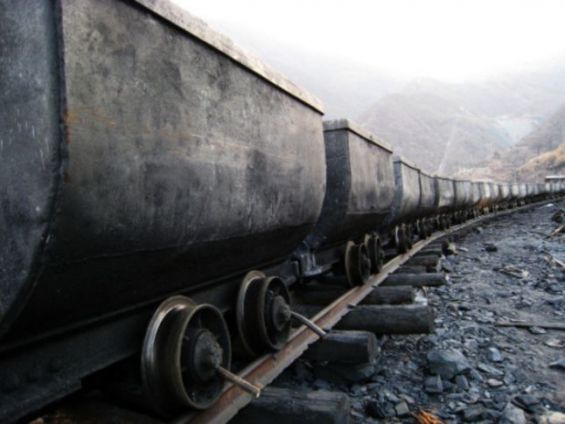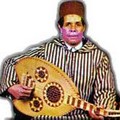Unfortunately, coal mining has always been linked to black lung disease, a sickness that coal miners develop because of long exposure to coal dust. For locals, this deadly sickness is known as silicosis, a similar condition to what they suffer from after working in mines for years. An expected end for workers and their sons who reap the consequences of working for years in Jerada.
Losing a father
The example is Rachid Essaltani, a resident of Jerada, whose father died after suffering for years from the coal workers’ pneumoconiosis. Speaking to Yabiladi, the young man who is also a member of a local collective of coal workers and sons, explained how this condition has affected the inhabitants of the Oriental town. «Jerada has been suffering from poverty, vulnerability and isolation since the end of Charbonnage du Maroc in 1998», he said .
«The laid off workers were compensated after the end of the operations and that was not much compared to the sickness they are suffering from».
Rachid who has witnessed the struggle of his late father and his fellow colleagues explained to Yabiladi that most of the miners were granted compensation but were faced later with the ugly truth. «After closing the mines the city became good for nothing, we were literally left with silicosis, a sickness that probably every single miner here in the city is suffering from today», argued the young man.
On the phone, and while rallying in Jerada beside other angered inhabitants who have lost their dear ones in the past, Rachid insisted that the laid off workers of Charbonnage du Maroc die young. «Around their 50s -sometimes 40s- they become reliant on artificial devices to be able to breathe», he said adding that they «suffer the most during summer and winter times, just like these days».
Complaining about the consequences of the mines’ closure, Rachid Essaltani insisted that «while these former miners are already struggling with their irreversible sickness they have to cope with their financial situation and the little money they live with».
«They have contributed to the economy of the country and sacrificed their health, wellbeing and future to be treated this way. Unfortunately, when our fathers needed a tangible recognition they couldn’t find one, the company ceased its activities and a whole generation became a victim of this».
Jerada is a city full of widows whose husbands succumbed from an early age to their sickness, explained Rachid. «Today, we are hitting the streets to demand the rights we have been deprived of all these years, a family cannot afford a living with 400 dirhams a month, it is a joke», concluded the Jerada native.
A professional diagnosis
Rachid has closely experienced what it feels like to be threatened by anthracosis, a deadly sickness that Soumaya Mouline, a Professor at Abulcasis International University of Health Sciences and a lung specialist, explained to Yabiladi.
«Anthracosis is a coal miners' disease, and it is called so as it is caused by the inhalation of coal dust», she said. «The lungs, or to put it in other words, the tissue and space around the air sacks of the lungs get severely affected», the doctor explained. As mentioned by the doctor, the state of the tissue affected by coal inhalation gets worse throughout the years, even after these miners stop their coal-related activities.
However, some miners’ conditions can quickly detoriorate compared to others if they are heavy smokers. «This represents an additional risk factor for the bronchi, and it can lead to respiratory failure».
Anthracosis significantly reduces the quality of life and life expectancy accordingly. «In the very long term, mesothelioma (a rare and aggressive form lungs cancer) can be developped,» indicates the doctor.
Suffering from Anthracosis outside Jerada
Miners in Jerada were not the only ones who had to suffer from this terrible disease. Others who chose to start a life elsewhere were also followed by the ghost of this condition.
Meanwhile in Marrakech, Amina the daughter of a former coal miner, has unfortunately lost her father because of the aforementioned condition. Living with her sisters and her widow mother, she kindly agreed to share her father's story with Yabiladi. «My father was just like the other miners who left Jerada when Charbonnage du Maroc closed its doors in 1998», she said adding : «we moved to Marrakech and settled down there as my father received a compensation for the time he worked for the company».
The young woman who was old enough to remember her father’s condition and last days explained that he was diagnosed with anthracosis when he was still working at the mines. «Miners in Jerada all knew that one day they would suffer from this disease and he knew it too. It was just a matter of time as the sickness worsened with the years», added Amina. During the days before leaving Jerada, her father’s condition started worsening and afterwards it deteriorated by 2012, he passed away the same year.
«We did not receive any kind of help. All our money was spent on this sickness. In Jerada, miners get to go to hospitals and receive medical assistance for free but for those who left the city it was not the case», argued the Amina whose mother was granted compensation by the courts. «Forty days after my father’s death my mother received her first retirement payment and it’s been going since then», indicated Amira saying : «it is not much but we manage to live by and after the compensation we received we were able to secure a living».
Amina her sisters and her younger brother know other families who have been through similar and sometimes even worse experiences. «A lot of other widows whose husbands died some of them have not received their compensations yet. Our neighbor is still struggling to get her money and the money of her kids», concluded Amina.
Years after Charbonnage du Maroc was closed, coal miners, their vulnerable widows and their orphan sons and daughters are still suffering from the leftovers of this 90's crisis. Expecting justice, the inhabitants of Jerada have decided to take the streets to voice their demands.




 chargement...
chargement...












